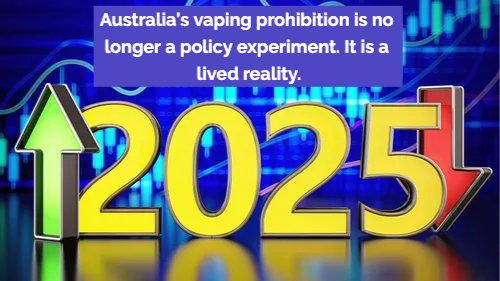Where’s the Wastewater Data, Minister?
- Alan Gor

- Jul 30, 2025
- 3 min read

Alan Gor 30 July 2025
During a national crisis over tobacco and vaping policy, one critical source of objective public health data has quietly vanished or been delayed: Australia’s national wastewater reports.
For years, these reports compiled by the Australian Criminal Intelligence Commission (ACIC) have helped track real-time drug and nicotine use across the country. They’ve offered policymakers, researchers, and the public an independent snapshot of what Australians are actually consuming. But the last publicly available report was released on 7 November 2024. Since then? Silence.
The Most Crucial Year — and the Data Is Missing or Being Held Back
This isn’t just any year. In July 2024, the federal government began rolling out its ban on non-therapeutic nicotine vapes — a controversial policy that has:
Fueled an unprecedented black market for both tobacco and vapes,
Led to over 230 tobacconist firebombings, and
Resulted in a surge in youth and young adult smoking, as confirmed by Roy Morgan’s July 2025 report.
And it’s that last point that makes the missing data even more damning.
The Roy Morgan Report Raised Red Flags — So Where’s the Follow-Up?
Roy Morgan’s nationally representative survey showed smoking among 18–24-year-olds jumped from 8.2% to 11.1% in less than a year following the vape ban. This sharp rise was accompanied by increases in both roll-your-own and factory-made cigarette use.
Rather than take these findings seriously, the government appeared to downplay or distance itself from them. A critical version of the Roy Morgan release was briefly erased from the internet, only to be replaced by a more neutral version that removed direct criticism of the legislation.
If the government were serious about evaluating its policies honestly, it would embrace all available evidence, especially wastewater data, which can independently confirm (or challenge) reported trends. But instead, that data has gone missing.
Why Wastewater Matters
Wastewater analysis doesn’t rely on self-reporting. It can’t be manipulated with cherry-picked survey questions. It’s objective. And because it’s consistent across time and geography, it allows us to track real-world behaviour, not just media narratives.
In previous years, this data showed declining cigarette use and rising nicotine vaping. So why did the government stop publishing it just as its own policies became the most radical and the most controversial in the developed world?
A Suspicious Silence
If the government believed its vaping crackdown was working, it would likely be broadcasting the evidence. Instead, the most transparent tool for assessing population-wide nicotine use has disappeared from public view.
The excuse of bureaucratic delay doesn’t hold up. The data was published like clockwork every four months until it no longer suited the political narrative.
Let’s be clear: if the November 2024 wastewater report is the most recent, that means we’ve had no update since the full effect of the vape reforms kicked in. That’s not a coincidence. It looks like a cover-up.
Who’s Accountable?
The Health Minister, the ACIC, and the public health bureaucracies that claim to operate on “evidence-based policy” all share responsibility here. By allowing key data to be buried or delayed indefinitely, they are preventing proper scrutiny of policies that have led to real-world harm, including a reversal in youth smoking trends.
Demand Transparency
The Australian public deserves better. These reports are paid for with taxpayer money. They were once celebrated as a gold standard in monitoring drug trends. Now, they’ve become politically inconvenient.
If you’ve got nothing to hide, release the data.
And if there’s something in those results that contradicts the government’s narrative, then the public has a right to know. Because nothing is more dangerous than public health policy based on politics, not evidence.


